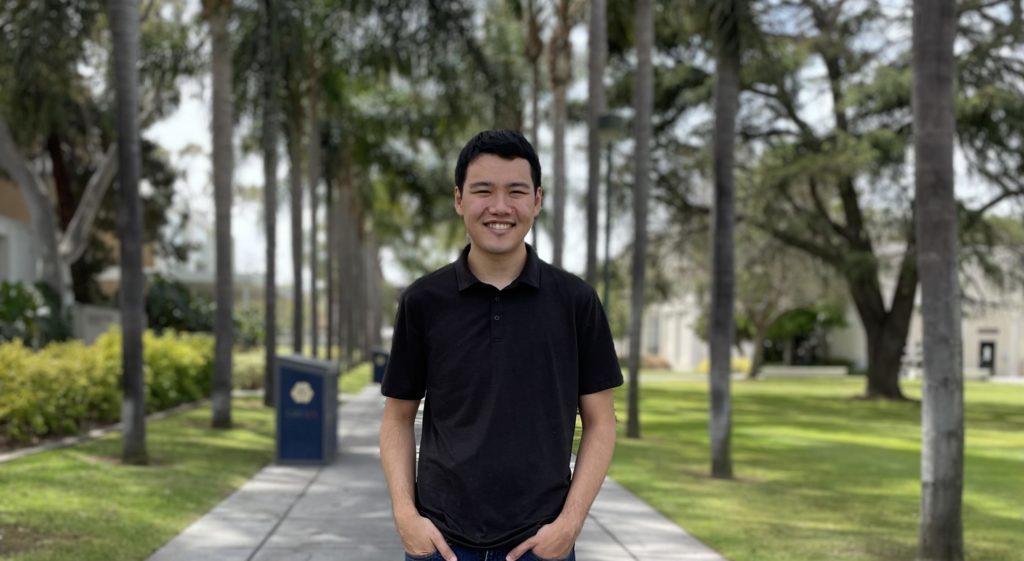
When it came time for Chasen Himeda to go to college, he knew he wanted to travel from his home in Hawaii to experience something on the mainland.
Born and raised in a small town on Oahu, Himeda just felt right at Loyola Marymount University. The small size and easy connection with faculty in the Frank R. Seaver College of Science and Engineering felt like home.
“I really enjoyed the atmosphere,” he says. “It was effortless for me to transition from a small island town to LMU.”
Then when it came time for him to earn a master’s degree, Himeda says going back to Seaver “was a no brainer.”
The summer before his senior year, while studying engineering physics and applied mathematics, Himeda began working as an intern at Raytheon Technologies on radar systems for fighter jets. He continued working part-time during his senior year, then signed on full-time after he graduated in 2018.
“My education gives me the best of both worlds—the theoretical understanding of the backbone of engineering and the practical systems engineering aspects of the job.”
Chasen Himeda
He found it challenging to apply his theoretical physics knowledge to the very practical systems engineering job. But LMU’s systems engineering Master’s program, which he completed in May 2021, complemented his work perfectly. Plus, most of the professors were industry professionals able to provide the context for his work that he needed to progress in his career.
Now, the 25-year-old Himeda is a systems engineer performing IV&V—or Integration, Verification & Validation—to make sure products meet requirements and perform successfully.
“It’s a very engaging experience, I really love it,” he says. “My education gives me the best of both worlds—the theoretical understanding of the backbone of engineering and the practical systems engineering aspects of the job.”
As part of his graduate degree, Himeda conducted an evaluation of radar laboratory safety systems at Raytheon for his capstone project. These projects challenge students to solve a real-world business problem.
Lab safety is a life and death issue for the engineers who work in the labs on a daily basis. Radar laboratories have high power, coolant flow, and electromagnetic energy—each can pose a critical safety risk.
“For my capstone, I observed lab safety, identifying the strengths and components of building a successful safety system,” says Himeda. “I had to deconstruct the strengths of the safety systems in various labs at Raytheon to understand them.”
From there, Himeda developed a potential design and lifecycle for a robust and effective universal safety system that might be used when developing a new lab. He presented his work as part of his master’s program and hopes to have the opportunity to present it to Raytheon’s management.
Throughout the Covid-19 lock down, Himeda has continued to work onsite in his classified lab. But to get him through home confinement outside of work he’s taken up a couple of new hobbies. In addition to learning to play acoustic guitar, he’s working on re-creating the food dishes he’s been missing from Hawaii. One of his specialties is loco moco. Here’s how he describes it: A bed of rice topped by a hamburger patty, a couple of over-easy eggs, grilled onions, and smothered with brown gravy.



